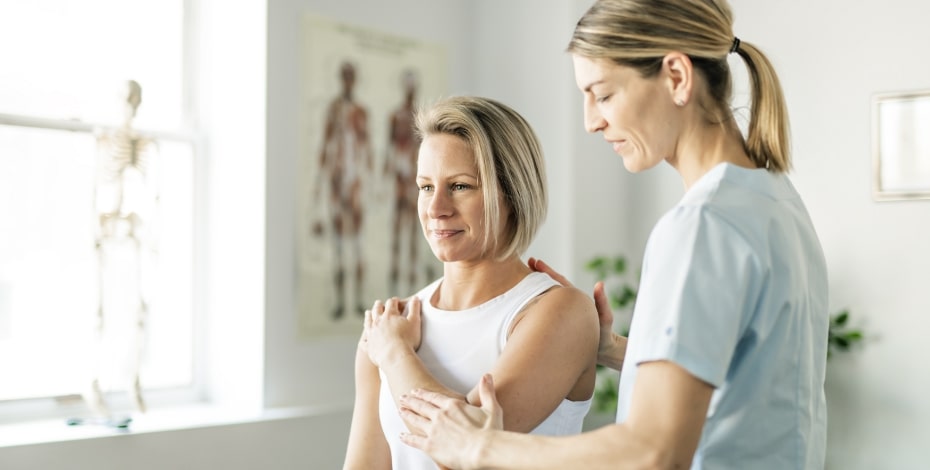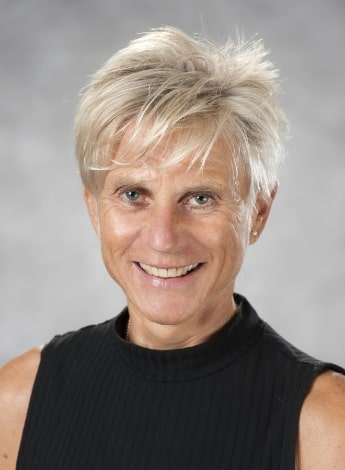
An opportunity for sharing knowledge

PHYSIOTHERAPY RESEARCH FOUNDATION For the past 35 years, the Physiotherapy Research Foundation has supported physiotherapists and research. Brigitte Tampin talks about a career spanning two countries and years of significant research projects.
Research creates knowledge and presents new opportunities for improving patient outcomes, says Dr Brigitte Tampin APAM.
A recipient of multiple grants over the past 16 years, Brigitte credits a Physiotherapy Research Foundation Seeding Grant received in 2008 with helping her establish her credentials in the assessment and treatment of neuromusculoskeletal disorders and neuropathic pain.
Physiotherapy Research Foundation Seeding Grants are made available each year to support early career researchers working on new or established research projects.
Brigitte’s $5000 grant enabled her to undertake a study as part of her PhD, titled ‘Clinical and somatosensory characteristics of patients with nerve-related neck-arm pain’.
‘No matter the size of the grant, each bit of funding is important for supporting evidence-based research,’ says the musculoskeletal physiotherapist, who has also held clinical positions in the private and public sectors.
Results from her investigation into inter-examiner agreement in classifying patients with cervical radiculopathy and non-specific neck-arm pain, using specific classification systems, showed that examiners were able to accurately classify 80 per cent of cases.
Her PhD was also supported by a National Health and Medical Research Council Postgraduate Scholarship and a Grant in Aid from Arthritis Australia.
It was acknowledged by the publication of five manuscripts in highly ranked medical journals and it highlighted the impact that physiotherapists can make in an advanced scope of practice such as triaging patients in emergency departments or neurosurgery clinics.
‘A result of the PhD is the positions I am now working in.
‘While it was an important piece of work to show validity in my questioning, it also led to further opportunity in my career.’
Brigitte leads several research projects at the neurosurgery spinal clinic at Sir Charles Gairdner Hospital in Perth, where she works as an advanced scope physiotherapist, and at Germany’s Hochschule Osnabrück (Osnabrück University of Applied Sciences), where she holds an honorary professorship in international physiotherapy.
Curious and with a drive to upskill and a passion for sharing knowledge, Brigitte has been published widely and is highly sought after as a conference speaker and teacher.
A Hochschule Osnabrück–Curtin University partnership sees Brigitte regularly return to her native country to teach physiotherapy.
Each July, a cohort of Curtin physiotherapy students enrol in Osnabrück’s International Summer University to further their experience.

Dr Brigitte Tampin credits her Physiotherapy Research Foundation seeding grant with establishing her research career.
‘It’s one way of not missing home,’ says Brigitte.
‘I have plenty of familiar faces here.’
The Australian Physiotherapy Council also drew on Brigitte’s skills, engaging her to assess overseas-trained physiotherapists for eight years.
Ironically, Brigitte left Germany for Australia in 1991 to improve her own professional skills and knowledge base.
‘Physiotherapy in Germany at that time was not an academic profession.
‘It was taught at a vocational school for three years.
‘It had a much lower standard compared with Australia.’
She continued to study, achieving a Postgraduate Diploma in Manipulative Therapy in 1991, a Master of Science in 1998 and the PhD in 2012, all from Curtin University, where she is an adjunct senior research fellow.
‘It was an eye-opener,’ she says of studying in Australia.
‘I was at a point in Germany where I almost stopped physio.
‘I was working in private practice but I felt unsure about what I was doing with patients… I was not happy with that.
‘It was the reason I came to Australia, to learn more and to gain knowledge of a thorough assessment and clinical reasoning, which wasn’t taught in Germany at that time.
‘I can honestly say that after that year in Perth, I had learnt the skills I needed and I felt more confident.
‘Importantly, I got the passion back to pursue a career in physiotherapy.
‘I am proud of how my career has progressed and what I am doing now.’
Brigitte says that grants can help careers flourish and motivate physiotherapists to make a valuable contribution to the profession.
‘Studies and innovative practice patterns test new modes of thinking and treatment that can meet community needs.
‘Grants are there to help improve health services.
‘Consider what is available and apply.
‘You never know where that grant may lead.’
>> Head to australian.physio/PRF for more about the Physiotherapy Research Foundation.
© Copyright 2024 by Australian Physiotherapy Association. All rights reserved.





